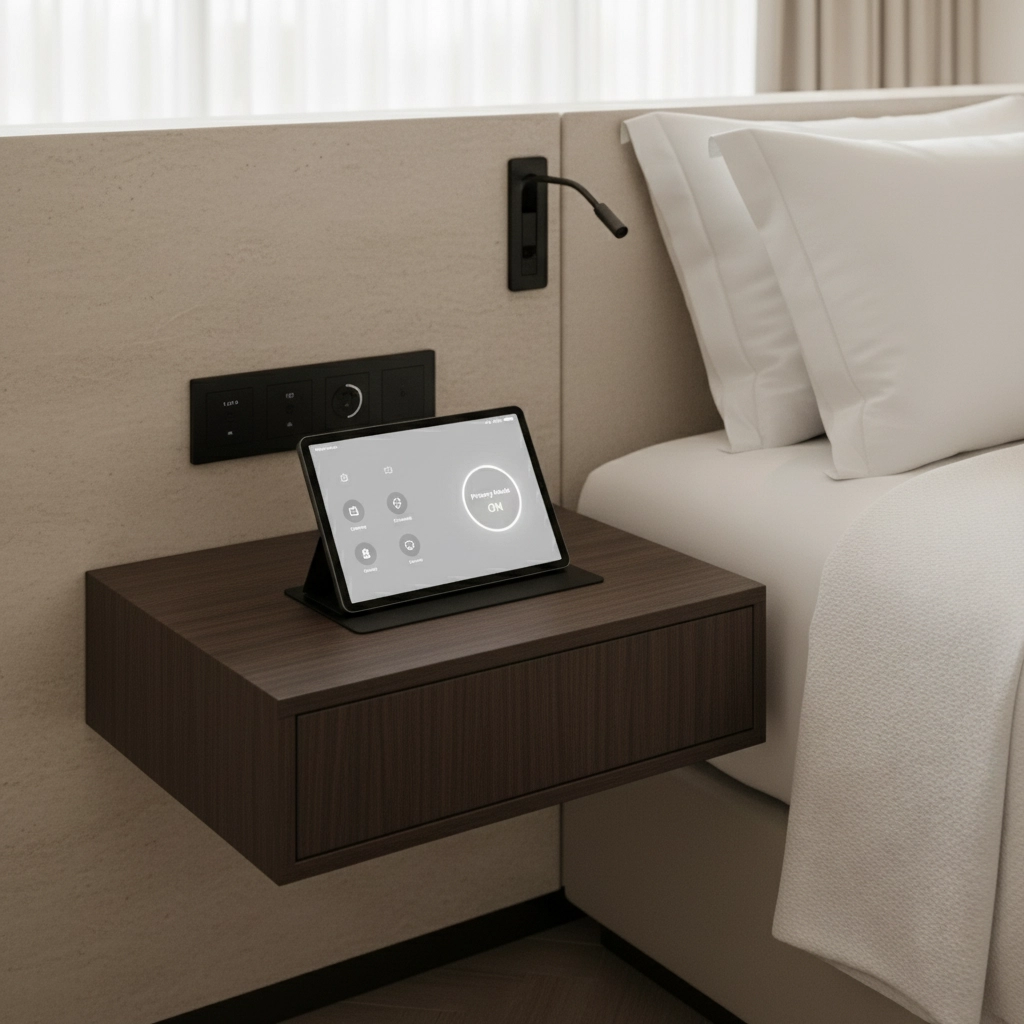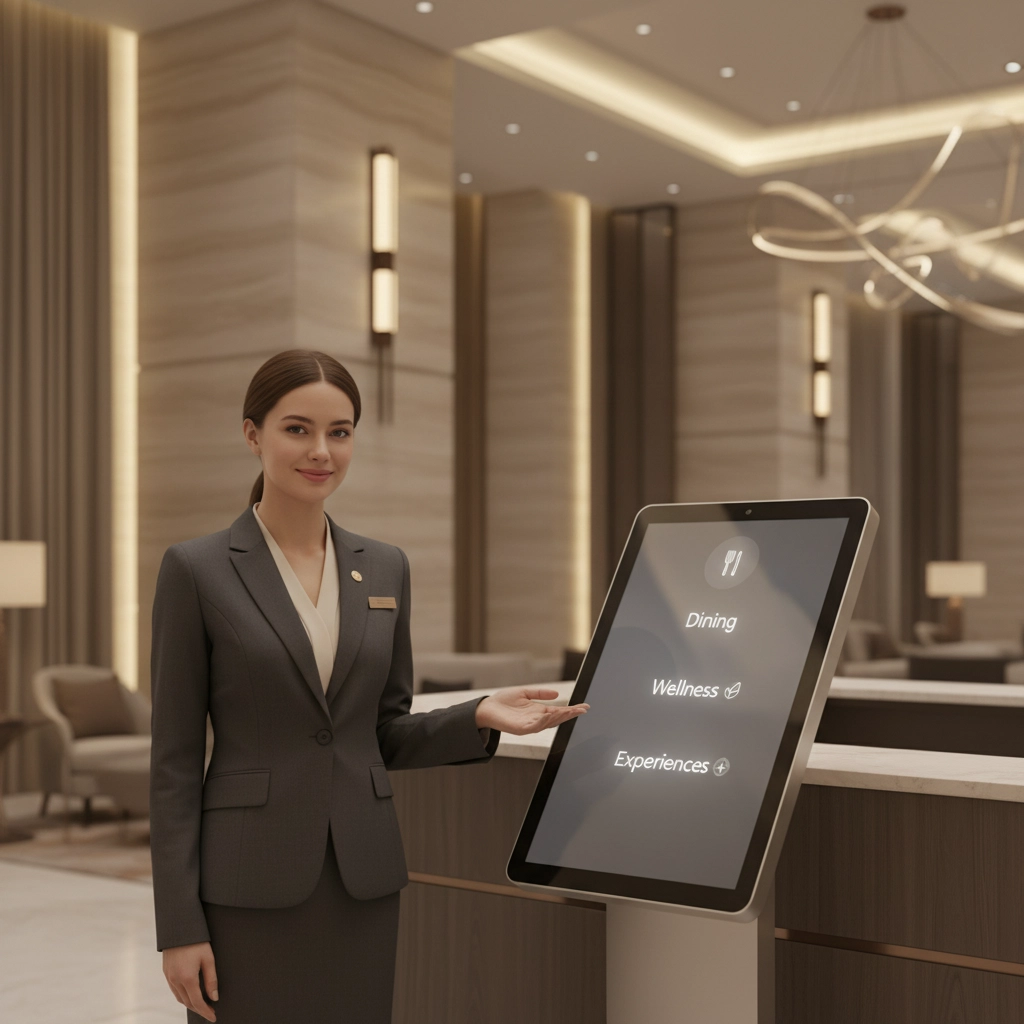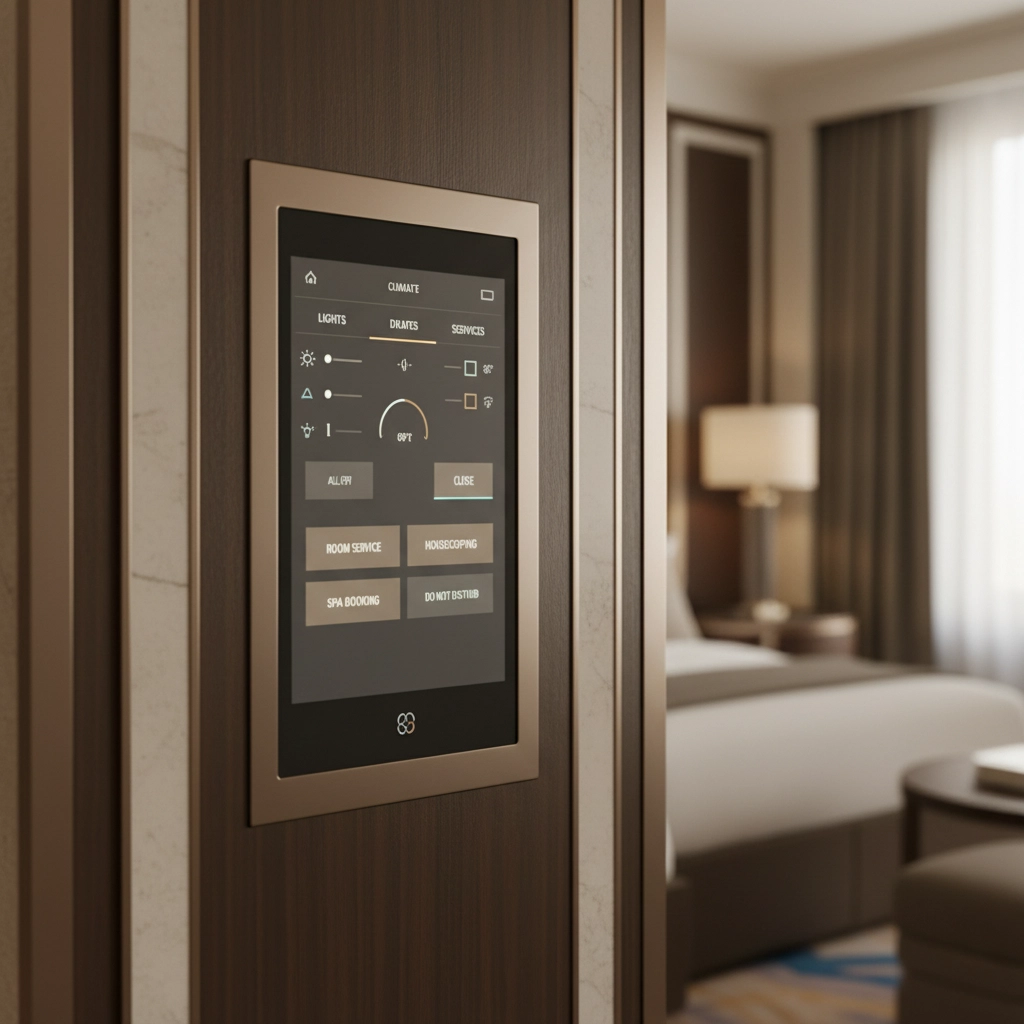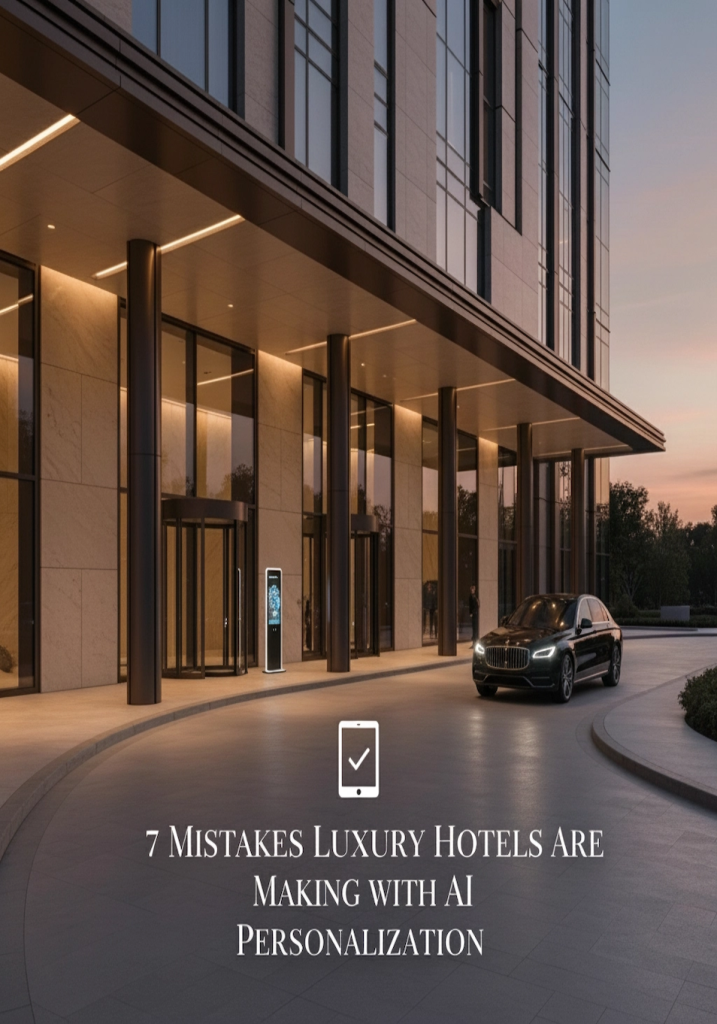The trends
Your guests expect magic. They want to walk into your luxury hotel and feel like you’ve read their minds: knowing their preferred room temperature, favorite wine, and even that they’re celebrating an anniversary. AI personalization promises to deliver this level of service at scale, but here’s the reality: most luxury hotels are getting it spectacularly wrong.
After working with premium hospitality brands worldwide, we’ve identified seven critical mistakes that are actually damaging guest relationships and hurting direct bookings. The good news? Each mistake has a clear fix that can transform your guest experience: and your bottom l
Mistake #1: Treating Guest Privacy Like It's Optional
The Problem: You’re collecting guest data like it’s going out of style, but your privacy framework looks like Swiss cheese. Luxury travelers are increasingly privacy-conscious, and when they sense their personal information might be compromised, they’ll book elsewhere faster than you can say “data breach.”
The hospitality industry has become a prime target for cyberattacks, making this oversight particularly dangerous. When guests feel their privacy is at risk, they become guarded about sharing the very information that makes personalization possible.
The Fix: Make privacy protection your foundation, not an afterthought. Implement privacy-enhancing technologies like blockchain and federated learning that protect guest data without reducing service quality. Create transparent data usage policies that guests actually understand: no legal jargon: and give them granular control over what information they share.
Most importantly, communicate your privacy commitment proactively. When guests see you’re genuinely protecting their data, they become more willing to share preferences that enable better personalization.

AtmoMistake #2: Crossing the Line Into Creepy Territoryspheric photography
The Problem: Your AI knows everything: where they dined last visit, how many towels they used, what time they typically order room service. So you showcase this knowledge proudly, thinking it demonstrates exceptional service. Instead, it feels like surveillance.
Over-personalization that makes guests uncomfortable is worse than no personalization at all. When your service feels invasive rather than intuitive, you’ve lost the luxury hospitality game entirely.
The Fix: Use AI insights to inform subtle service improvements rather than explicitly showcasing your omniscience. The goal is to anticipate needs seamlessly, not to prove how much data you’ve collected.
Allow guests to opt into different levels of personalization. Some travelers want maximum customization, while others prefer pleasant surprises. Train your team to recognize the difference between thoughtful service and surveillance: the best luxury experiences feel effortless, not calculated.
Mistake #3: Replacing Heart with Hardware
The Problem: You’ve invested heavily in AI systems but forgotten that luxury hospitality thrives on human connection. Your chatbots handle check-in, AI curates dining recommendations, and automated systems manage room preferences. But where’s the warmth? The empathy? The genuine human touches that justify premium rates?
AI excels at processing data but struggles with emotional intelligence. It can’t read between the lines when a guest mentions they’re “celebrating something special” or catch the subtle cues that indicate someone needs extra attention.
The Fix: Position AI as a tool that empowers your staff, not replaces them. Use AI to handle routine tasks and provide staff with actionable insights, freeing them to focus on meaningful guest interactions.
For example, AI can alert your concierge that a guest frequently books spa treatments, but your human team should be the ones who notice they seem stressed and proactively suggest a wellness experience. Technology should enhance human service, never substitute for it.

Mistake #4: Playing Russian Roulette with Cybersecurity
The Problem: You’ve deployed AI personalization systems without robust cybersecurity frameworks. Your smart room technologies, mobile apps, and AI platforms process sensitive guest information, but your security measures were designed for simpler times.
A single data breach doesn’t just cost money: it destroys the trust that luxury brands spend decades building.
The Fix: Invest in enterprise-grade cybersecurity infrastructure before expanding AI capabilities. Conduct regular security audits, implement end-to-end encryption for all guest data, and establish clear protocols for incident response.
Ensure compliance with international data protection regulations like GDPR, and maintain transparent communication with guests about your security measures. When guests see you take their security seriously, they trust you with more valuable information.
Mistake #5: Creating Technology Frankenstein Monsters
The Problem: Your property management system doesn’t talk to your CRM. Your mobile app operates independently of your AI recommendation engine. Your room automation exists in a separate universe from your restaurant reservations. You’ve created a disjointed ecosystem of technologies that confuses staff and frustrates guests.
This fragmented approach leads to inconsistent experiences, data silos, and the high costs that make AI seem unprofitable.
The Fix: Develop a comprehensive technology strategy that prioritizes integration and interoperability. Choose AI solutions that work seamlessly with existing systems or commit to systematic infrastructure upgrades.
The goal is a unified guest profile that travels with them throughout their stay, enabling consistent personalization whether they’re checking in, ordering room service, or booking spa treatments. When your systems work together, your personalization becomes truly powerful.

Mistake #6: Trapping Guests in Boring Preference Bubbles
The Problem: Your AI remembers that a guest always orders the salmon, so it always suggests salmon. They typically book the same room category, so that’s what you offer. While consistency has value, over-reliance on past data creates predictable, repetitive experiences that eliminate the surprise and discovery that make luxury travel magical.
Guests begin to feel trapped in algorithmic boxes, receiving the same suggestions visit after visit.
The Fix: Program your AI systems to balance pattern recognition with novelty and exploration. Build mechanisms that occasionally suggest new experiences while respecting established preferences.
Collect information about guests’ aspirations and interests beyond just booking history. Maybe they always order salmon but mentioned wanting to try more adventurous cuisine. Create feedback loops that continuously refine offerings based on guest responses to both familiar and novel recommendations.
Remember: luxury travelers often seek experiences they can’t get at home. Help them discover something new while honoring their known preferences.
Mistake #7: Accidentally Discriminating Through Algorithmic Bias
The Problem: Your AI systems might be making assumptions based on demographics, past booking patterns, or other factors that result in unequal treatment. This algorithmic bias can lead to discriminatory service delivery that undermines your brand values and potentially violates anti-discrimination laws.
The luxury hospitality industry should be about exceptional service for everyone, not AI-driven prejudices.
The Fix: Regularly audit your AI algorithms for bias across different demographic groups. Establish diverse teams to oversee AI implementation and test systems across varied guest profiles.
Create override mechanisms that allow staff to intervene when AI recommendations seem inappropriate or biased. Balance technological efficiency with ethical considerations and the fundamentals of customer satisfaction.
Most importantly, develop loyalty programs and personalization approaches that reward individual preferences rather than potentially biased algorithmic assumptions.
The Path Forward: AI That Actually Works
The luxury hotels winning with AI personalization aren’t just avoiding these mistakes: they’re using technology to create experiences that feel both cutting-edge and genuinely personal. They understand that successful AI implementation requires balancing technological capability with human judgment, guest privacy with service excellence, and efficiency with authenticity.
At Dion Digital Agency, we’ve helped luxury hotels navigate these challenges by developing AI strategies that enhance rather than replace the human elements that define premium hospitality. Our approach focuses on creating technology ecosystems that empower staff, protect guest privacy, and deliver personalization that feels magical rather than mechanical.
The future of luxury hospitality isn’t about choosing between human service and AI: it’s about combining both to create experiences that exceed even the highest guest expectations.
Ready to transform your hotel’s approach to AI personalization? Let’s create technology that serves your brand values, not the other way around.
“Brush up on colors and their associated emotions to make sure you nail the mood and tone of your brand.”




